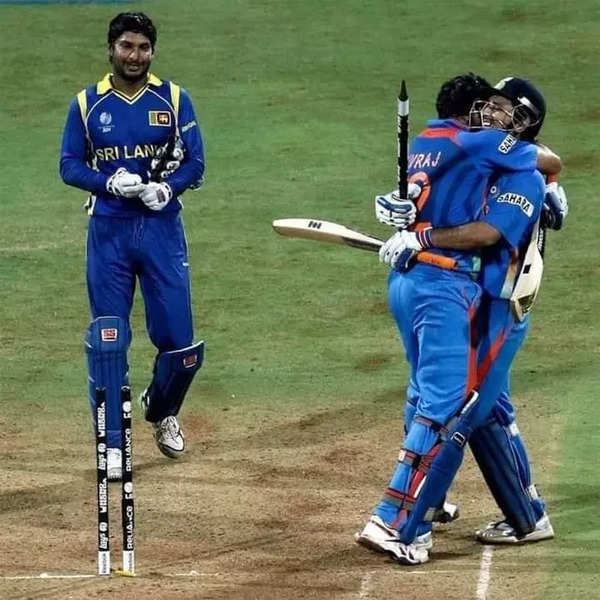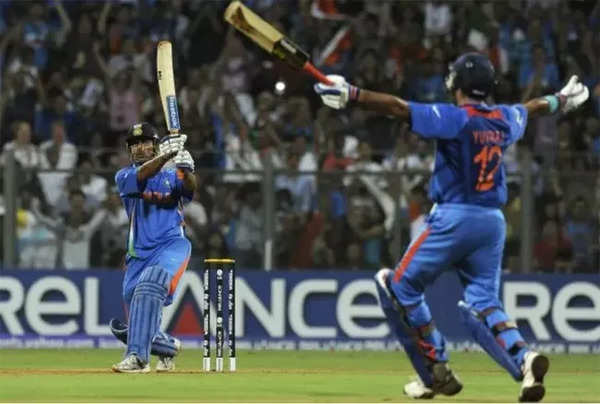Despite being hampered by back pain during the final match against Sri Lanka, Dhoni led by example, steering India to their second ODI World Cup victory. India secured their maiden ODI World Cup title under the leadership of Kapil Dev in 1983 when they triumphed over the formidable West Indies in the championship match at the renowned Lord’s Cricket Ground.
In pursuit of a target of 275 in the 2011 World Cup final against Sri Lanka, Dhoni elevated himself in the batting order, ahead of the in-form Yuvraj Singh, to handle the immense pressure of the occasion.
The Indian skipper exhibited remarkable composure, contributing an unbeaten 91 runs off 79 deliveries. His innings showcased exceptional poise and shot selection, featuring eight boundaries and two sixes in his outstanding performance.
The defining moment that secured the championship occurred in the 49th over when Dhoni launched a magnificent six off Kulasekara, a shot that has since become legendary in Indian cricket history.
Since that unforgettable evening in Mumbai, India has been unable to recapture the ODI World Cup.

Despite reaching the semi-finals in 2015 and 2019, and final in the 2023 edition, the coveted third title has remained elusive, further enhancing the significance of Dhoni’s 2011 achievement.
Dhoni stands alone as the only captain in cricket history to secure all three major ICC trophies. He spearheaded India’s triumph in the 2007 ICC T20 World Cup, signaling the global rise of T20 cricket. In 2011, Dhoni led India to their second ODI World Cup victory.
Two years later, in 2013, he guided India to an ICC Champions Trophy success, overcoming England in the final.
Rohit Sharma has now joined Dhoni as an Indian captain who has won the T20 World Cup. Under Rohit’s leadership, India emerged victorious against South Africa in a thrilling final in Barbados to claim the prestigious trophy.
